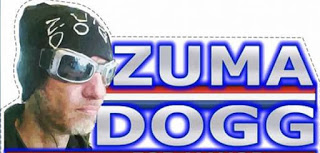NOTE FROM PUBLISHER: Sorry, Andy...Los Angeles Councilmember Wendy Greuel used her "Councilmember" title on one of your fund raising invitations and you are thinking of swearing in Villaraiogsa on July 1st...those two items put you in MY jurisdiction, so you must be taken down. Nothing personal. Don't even know ya.
ANDREW CUOMO, ANDREW FARKAS, AND MARIO CUOMO: A CASE STUDY IN CONFLICTS, CORRUPTION, AND FAILURE.
As New York Attorney General Andrew Cuomo attempts to cross state lines to garner national attention, his past and present seem to be catching up on him. Recent NY press have all but anointed the less than impressive Cuomo as their governor elect, however, his 2010 fundraising committee filing is reminding New Yorkers that Cuomo is still in the pocket of real estate slumlords, attorneys representing real estate slumlords, and of course, Willkie, Farr, & Gallagher, the law firm of his father Mario who is of counsel to the private equity, hedge fund, and structured finance group at the firm which has represented many of the investment companies his son is now investigating. Of special note to all parties following the pension investigation is the obvious omission of his friends in real estate. Rumors have also recently surfaced that Cuomo had an extra marital affair with the wife of seated Governor David Patterson and an affair with a subordinate presently under his direct supervision. The following are excerpts from articles written by the highly regarded Wayne Barrett of the Village Voice.
Andrew Cuomo's $2 Million Man
How the Attorney General wannabe turned an accused slumlord into a sugar daddy
Wayne Barrett, with special reporting by Alex Altman and Alicia Lozano
published: August 29, 2006
-The most important man in Andrew Cuomo's personal and political life, topping even his ex-governor father, is obscure, 46-year-old developer Andrew Farkas, who's ponied up over $2 million for the front-running attorney general candidate in recent years. That includes $1.2 million in salary that Farkas's firm, Island Capital, paid Cuomo in 2004 and 2005, as well as over $800,000 in identifiable campaign contributions from varied Farkas companies, family members, and business associates. It does not include an undisclosed amount Island paid Cuomo up to June 2006, when Cuomo finally left the company, which specializes in Dubai and Caribbean luxury marinas. Cuomo's earnings tripled when he went to work at Island, where he's made more money than at any other time in his life.
-Cuomo, too, appeared uninformed about what the lawsuit and his own public statements said about the direct linkage between the alleged kickbacks—which drained millions from the actual maintenance of the projects where thousands lived—and the conditions. All he would say was Farkas "thought it was OK legally" to participate in the fee-splitting arrangement, believing that "HUD had approved it" previously, which Farkas certainly reiterated. Despite authorizing the suit that challenged the practice as secretary, Cuomo now refers repeatedly to a court decision that he says occurred after he left HUD in 2001 and that apparently found similar payments made by another management firm legal. Ironically, he seemed to prefer that precedent to the Rozet case, which affirmed Cuomo's onetime opinion that the fee-splitting was illegal, and was also resolved after he left office, ending in a settlement that vindicated the government's position on the payments. Farkas pointed to the same case, though neither he nor Cuomo knew any specifics about it.
-As remarkable as Cuomo's subsequent relationship with Farkas is in view of the prior accusations, what's also disturbing is that he approved an out-of-court settlement with Insignia that allowed the company to complete a billion-dollar sale of its residential portfolio only five days later.
-Farkas and Cuomo, who say they did not meet at the time of the case, have told reporters they crossed paths accidentally during a visit with a "big guy in the real estate business" in 2001, that Farkas initially regarded him as a "sworn enemy" because of the 1997 charges, but that they quickly patched things up. After this initial "bonding" session, as Gilbert described it, Farkas told him and other senior staff that he was "bringing Cuomo up to Insignia offices" and that he wanted them to "hear Andrew out." The purpose of the meeting, said Gilbert, was for Cuomo "to talk about fee-splitting," to prove that "he didn't have it in for Insignia per se," to explain that he was dealing with a supposedly "industry-wide" issue, and to convince the key executives that they "shouldn't hate him." Cuomo declined to tell the Voice who introduced him to Farkas, and would not describe the discussion
-Whatever the magic-tongued Cuomo said, Insignia entities began immediately donating to Cuomo, launching an avalanche of Farkas-tied contributions that has continued right up to the most recent filing. The first Insignia contributions—$5,000 apiece from two entities—occurred in August 2001, just months after Cuomo left HUD, and were among the very first donations to his newborn gubernatorial campaign committee. They were hardly the first Farkas contributions to a Cuomo; other members of the Farkas family, which used to own the Alexander's department store chain, had contributed to the campaigns of Cuomo's father, Mario, when he was governor. Mario Cuomo actually appointed Farkas's father to the board of the state's powerful Dormitory Authority in his final year in office in 1994, and Robin Farkas became its chairman in 1995.



